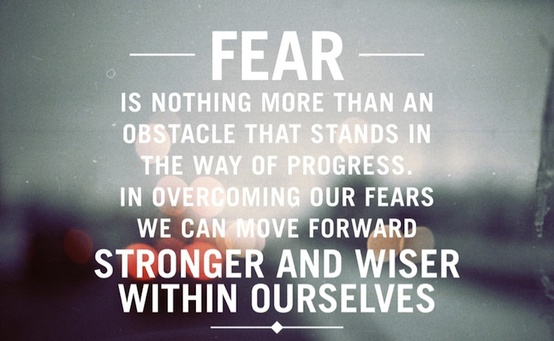I keep telling myself that I am fearless. I repeat to myself “You’re not scared of anything, the worst that could happen is that life goes on.” There’s a quote from Eleanor Roosevelt, “Do one thing every day that scares you.” It sounds easy, but trust me, it’s not. I used to think I did things that scared me all the time, but then when I really took a second and reflected on my life I realized that every time I had backed out of something it was because I was scared.
The thing that scares me the most is social judgement and being vulnerable; people judging me for the way I look or act, and using what they know about me against me. Social judgement is a common fear, especially for people with introverted personalities. You want people to like you for who you are, but if they don’t you immediately find yourself trying to mold your personality into something better. Maybe you don’t know how to talk to people, or maybe you never have the right thing to say.
For me personally, I have good days and bad days. Some days I make it a point to say hello to everyone I see, but some days I avoid people like its my job. Lately I’ve been trying to do things that scare me and not backing out. I hate school dances; I’m going to a school dance this Saturday. I hate being vulnerable; I started a blog and poured my feelings out, then shared them with the internet. I’m scared of getting fat; I started eating like a weightlifter to prove that eating more doesn’t necessarily make you fat. I’m scared of being in front of people in a skin-tight singlet; I signed up for a weightlifting meet and didn’t have a choice.
 And the list goes on. I hope you get my point by now. Everyone has fears, and we can try to overcome those fears by scaring ourselves a little bit everyday. You will be surprised at how good you feel when you overcome your personal fears. Maybe you have social anxiety, body image problems, irrational fears, or you are afraid of heights. Finding your fears and conquering them will make you a stronger person.
And the list goes on. I hope you get my point by now. Everyone has fears, and we can try to overcome those fears by scaring ourselves a little bit everyday. You will be surprised at how good you feel when you overcome your personal fears. Maybe you have social anxiety, body image problems, irrational fears, or you are afraid of heights. Finding your fears and conquering them will make you a stronger person.






